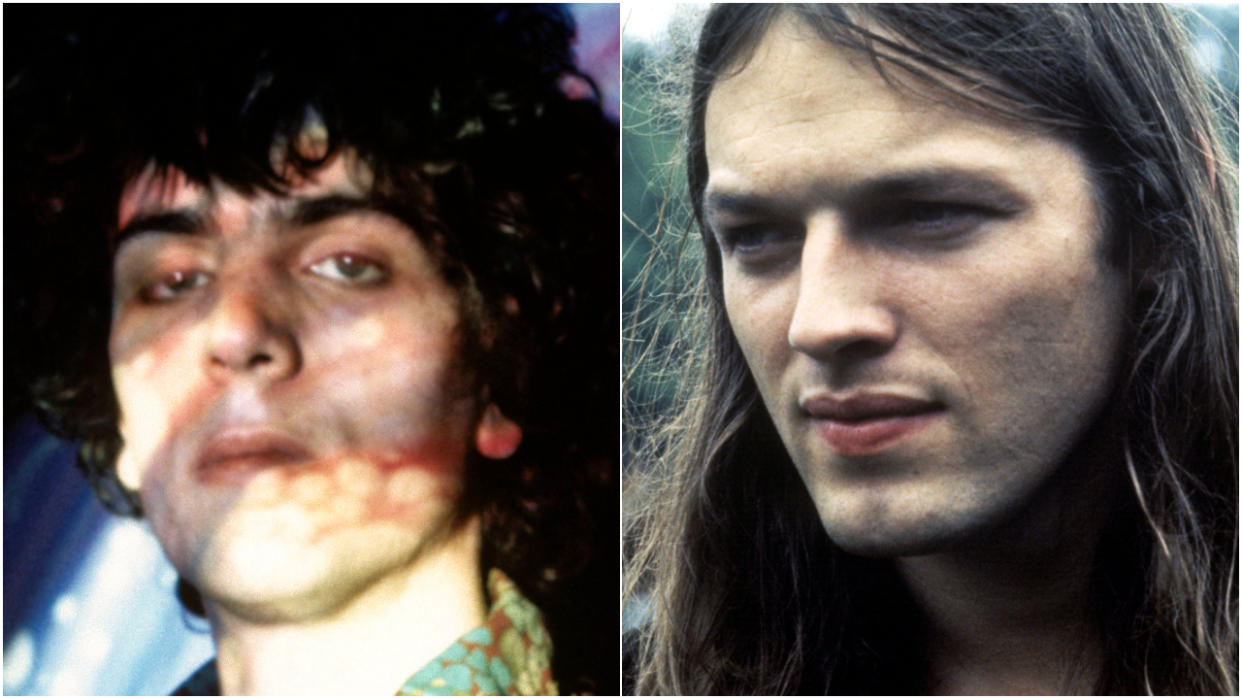"People were very down on us after Syd left. Everyone thought Syd was all the group had": In the wake of the worldwide success of The Dark Side Of The Moon, David Gilmour remembered when Pink Floyd were written off as yesterday's men

In December 1967, Pink Floyd decided to expand to become a five-piece, with the addition of David Gilmour. The Cambridge-born guitarist had known the group's frontman Syd Barrett since he was 15, and the opportunity to play alongside him was too tempting to turn down: "not being completely mad, I said yes," Gilmour later recalled.
Floyd's newest member was only too aware that Barrett was an unusual and complex character - "I remember when the band was recording See Emily Play Syd rang me up and asked me along to the studio,: he told Melody Maker in 1973. "When I got there he gave me a complete blank" - but he could not have known just how short Barrett's tenure with the band would be after his own admission to the group. Although Barrett's exit from Pink Floyd was made official in April 1968, the writing was on the wall from January 26 that year when, ahead of a gig at Southampton University, a decision was made not to call to collect Barrett.
In Gilmour's own words, replacing Barrett in Pink Floyd was "a strange experience."
"At first I felt I had to change a lot and it was a paranoic experience," the guitarist admitted to Melody Maker writer Chris Welch. "After all, Syd was a living legend... It took a long time for me to feel part of the band after Syd left. It was such a strange band, and very difficult for me to know what we were doing. People were very down on us after Syd left. Everyone thought Syd was all the group had, and dismissed us. They were hard times."
The bleak mood around the new-look band was hardly helped by the fact that their managers, Peter Jenner and Andrew King of Blackhill Enterprises, elected to stick with representing Barrett and sever their business ties with Pink Floyd. The musicians bore Barrett no ill feeling for this, and in fact Gilmour and Roger Waters played on and produced a number of songs on his first solo album, The Madcap Laughs, while Gilmour and Richard Wright produced its follow-up, Barrett. "God, what an experience," the guitarist told Melody Maker. "God knows what he was doing."
Despite this, Gilmour remained effusive in his praise of Barrett's talents.
"He was one of the great rock'n'roll tragedies," he concluded in 1973. "He was one of the most talented people and could have given a fantastic amount. He really could write songs, and if he had stayed right, could have beaten Ray Davies at his own game."
In the new documentary Have You Got It Yet? The Story Of Syd Barrett And Pink Floyd, made by film maker Roddy Bagawa and Barrett's former childhood friend Storm Thorgerson, co-founder of the Hipgnosis design company, Gilmour admits to "a regret or two" as to how his relationship with his old friend played out.
"We probably did about as much as we could have, although we were all very young," he says in the film. "But I have a regret or two. I never went to see him, even though his family kind of discouraged it and I regret that I never went up to his house and knocked on the door. I think both Syd and I might have gained something out of one or two people popping ’round to his house for a cup of tea."
